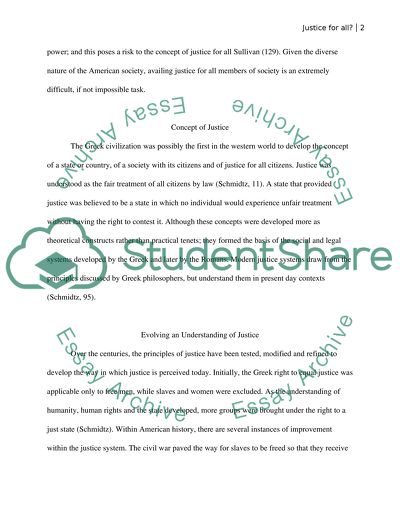Cite this document
(“Is Justice for All Possible in America Research Paper”, n.d.)
Retrieved de https://studentshare.org/philosophy/1446862-is-justice-for-all-possible-in-america
Retrieved de https://studentshare.org/philosophy/1446862-is-justice-for-all-possible-in-america
(Is Justice for All Possible in America Research Paper)
https://studentshare.org/philosophy/1446862-is-justice-for-all-possible-in-america.
https://studentshare.org/philosophy/1446862-is-justice-for-all-possible-in-america.
“Is Justice for All Possible in America Research Paper”, n.d. https://studentshare.org/philosophy/1446862-is-justice-for-all-possible-in-america.


